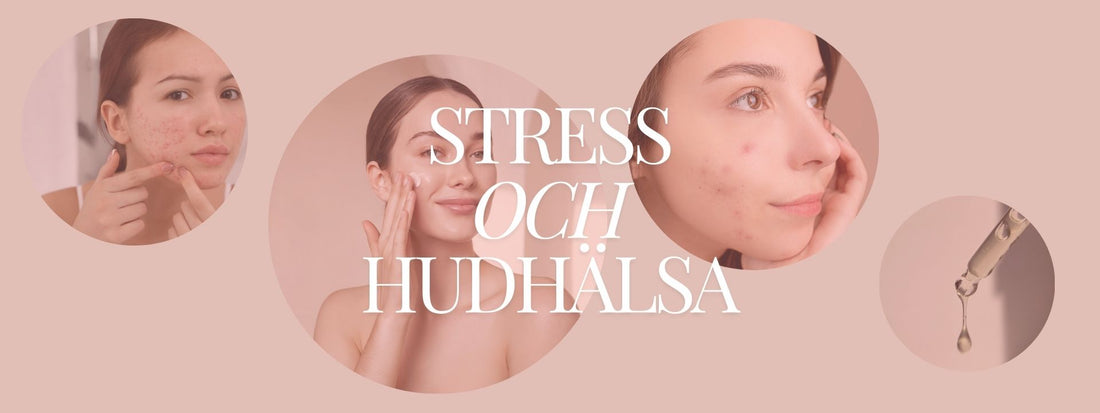
The connection between stress and skin health – how to keep your skin happy
Share
Stress is a natural part of life, but when it becomes prolonged, it can affect both our physical and mental health. One of the most noticeable effects of stress is seen on the skin – our largest organ. But how does stress actually affect our skin, and what can we do to keep it healthy and balanced? Here we go over the connection between stress and skin health and give you concrete tips on how to care for your skin during stressful periods.
How does stress affect the skin?
When we are stressed, our bodies produce more of the stress hormone cortisol. This hormone can stimulate the sebaceous glands, leading to increased sebum production and oilier skin, which often results in acne breakouts. At the same time, the skin's barrier function deteriorates, making it harder for it to retain moisture and increasing sensitivity. Stress can also trigger inflammation in the body, which in turn can worsen skin conditions such as eczema, psoriasis and rosacea. In addition, the skin's ability to heal itself is negatively affected, and chronic stress breaks down collagen and elastin, leading to premature wrinkles and sagging skin.
Sleep and diet – a foundation for healthy skin
While we can’t always avoid stress, there are many things we can do to reduce its impact on our skin. Prioritizing a good night’s sleep is one of the most important things to do. Lack of sleep increases cortisol levels and impairs skin recovery, so getting at least 7–8 hours of sleep per night gives your skin time to repair itself. A nutritious diet also plays a big role. By eating foods rich in antioxidants, such as berries, nuts, vegetables, and fatty fish, we can combat inflammation and strengthen our skin’s defenses. It’s also important to drink plenty of water to keep your skin hydrated.
Gentle skin care and organic products
Having a well-thought-out skincare routine with gentle and organic products can make a big difference. Avoid harsh chemicals and instead choose products with natural ingredients like aloe vera, chamomile and oats, which soothe and strengthen the skin. Niacinamide, hyaluronic acid and ceramides help to hydrate and repair the skin barrier. Makeup can also play an important role – choose organic and skin-friendly products that allow the skin to breathe. Heavy, comedogenic products can aggravate stress-related skin problems, so it’s a good idea to invest in mineral-based makeup and lighter formulations.
Stress management and physical activity
At the same time, various relaxation techniques such as meditation, yoga, deep breathing and mindfulness can lower cortisol levels and reduce the negative impact that stress has on the skin. Regular exercise is another important factor. Physical activity improves blood circulation, helps the body deal with stress and contributes to healthier skin. Taking a daily walk or engaging in some form of exercise can make a big difference for both skin and mind.
Small changes for a big difference
It may also be a good idea to limit your intake of caffeine and alcohol, as these substances can contribute to dehydration and inflammation of the skin. Replacing some of your coffee with herbal tea and reducing your alcohol consumption can have positive effects. An additional tip is to use organic face masks and oils as part of your evening routine to give your skin extra nourishment and help it recover.
Conclusion
Stress affects your skin in many ways, but by prioritizing sleep, healthy eating, organic skincare products, gentle makeup, and a good skincare routine, you can reduce its negative effects. Finding ways to manage stress in your daily life will not only benefit your skin – it will also improve your overall health and well-being. Take care of yourself and let your skin shine!
